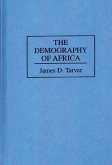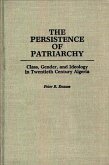Heated debates about and insurgencies against female circumcision are symptoms of a disease emanating from a mindset that produced hierarchies of humans, conquered colonies, and built empires. The loss of colonies and empires does not in any way mitigate the ideological underpinnings of empire-building and the knowledge construction that subtends it. The mindset finds its articulation at points of coalescence. Female circumcision provided a point of coalescence and impetus for this articulation. Insisting that the hierarchy on which the imperialist project rests is not bipolar but multi-layered and more complex, the contributions in this volume demonstrate how imperialist discourses complicate issues of gender, race, and history. Nnaemeka gives voice to the silenced and marginalized, and creates space for them to participate in knowledge construction and theory making.
The authors in this volume trace the travels of imperial and colonial discourses from antecedents in anthropology, travel writings, and missionary discourse, to modern configurations in films, literature, and popular culture. The contributors interrogate foreign, or Western, modus operandi and interventions in the so-called Third World and show how the resistance they generate can impede development work and undermine the true collaboration and partnership necessary to promote a transnational feminist agenda. With great clarity and in simple, accessible language, the contributors present complex ideas and arguments which hold significant implications for transnational feminism and development.
The authors in this volume trace the travels of imperial and colonial discourses from antecedents in anthropology, travel writings, and missionary discourse, to modern configurations in films, literature, and popular culture. The contributors interrogate foreign, or Western, modus operandi and interventions in the so-called Third World and show how the resistance they generate can impede development work and undermine the true collaboration and partnership necessary to promote a transnational feminist agenda. With great clarity and in simple, accessible language, the contributors present complex ideas and arguments which hold significant implications for transnational feminism and development.









